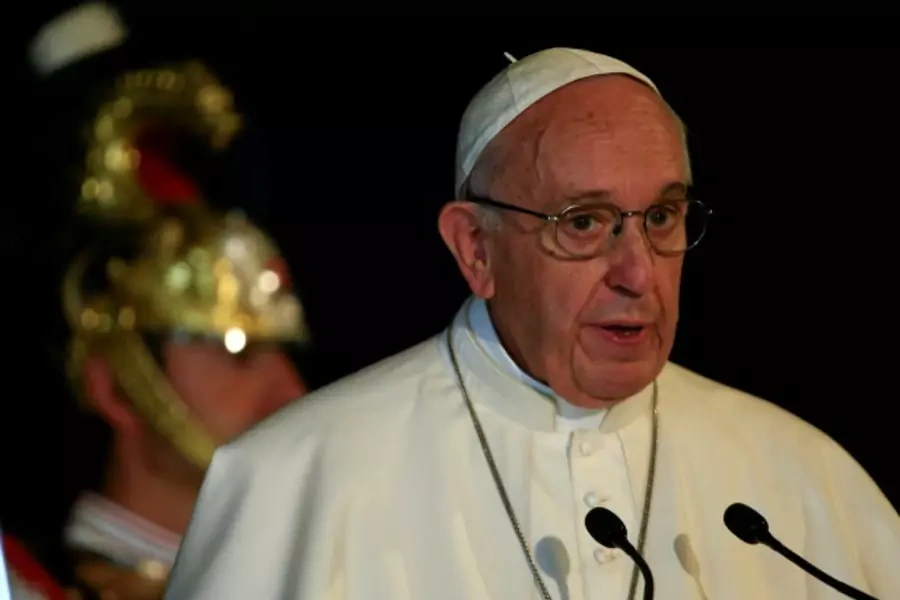Pope Demands Obedience From Nigerian Catholics

Pope Francis has demanded that priests of the Roman Catholic diocese of Ahiara accept the bishop appointed by Pope Benedict XVI in 2012 and that each priest in the diocese write him a personal letter of apology and obedience. Failure to do so will result in firing. Catholic media report that the Pope’s rhetoric was unusually harsh.
What is going on here?
More on:
The episode must be seen in the context of ongoing clan and ethnic loyalties in Nigeria. Ahiara is in the heart of Igboland, in Imo state. Catholic websites estimate the population to be 673,000, of whom 519,000 are Roman Catholics. Most of the Catholic population is part of a specific Igbo ethnic group, the Mbaisi, which are the result of the amalgamation of three clans. In some ways the diocese of Ahiara is a Roman Catholic powerhouse, especially in terms of the numbers of priests and of the faithful. Nevertheless, the feeling is widespread in the diocese that other Nigerian Catholics insufficiently recognize its accomplishments.
In 2012, Pope Benedict XVI appointed a non-Mbaise, Peter Okpeleke, as bishop of the diocese. Though consecrated, Bishop Okpeleke has not been able to take up residence in his diocese because his appointment was not accepted by most of the clergy there.
The Vatican has made efforts to reconcile the differences between the Mbaise and the bishop, which center on the role of ethnic identity. In some cases in Europe and the Americas, popes have taken ethnicity into account. For example, bishops are usually French Canadian in Quebec. However, in Africa, where the church is often new and ethnic distinctions can lead to hostility, appointments are often from outside the diocese’s dominant ethnic group. That appears to have been the case in Ahiara. Regardless of the level of accommodation afforded to dioceses, the appointment of bishops is the prerogative of the Pope. It is likely that most of the Ahiara clergy will submit to Pope Francis, though some may decamp for other “African” churches not aligned with denominations of European origin.
More on:
 Online Store
Online Store